Welcome User
Relevance
Consult Infectious Disease Specialists Online (67 doctors)
Dr. Shamim Anjum
Family Physician
15 Years • MBBS, M MED (Family Medicine)
Hyderabad
FAMILY CARE CLINIC, Hyderabad
Dr Nikhat Shamim
General Practitioner
4 Years • MBBS
Kolkata
VIP MEDICAL SERVICE, Kolkata
Dr Sumanth R
General Physician
2 Years • MBBS
Bengaluru
PRESTIGE SHANTHINIKETAN - SOCIETY CLINIC, Bengaluru
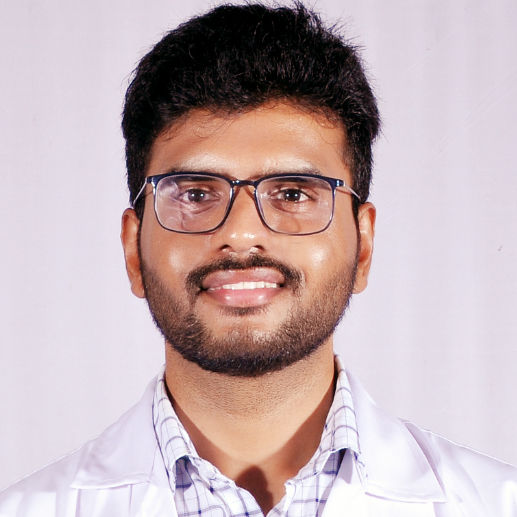
Dr Madhu R
Dermatologist
5 Years • MBBS MD -Dermatology
Bengaluru
Apollo Medical Center, Marathahalli, Bengaluru
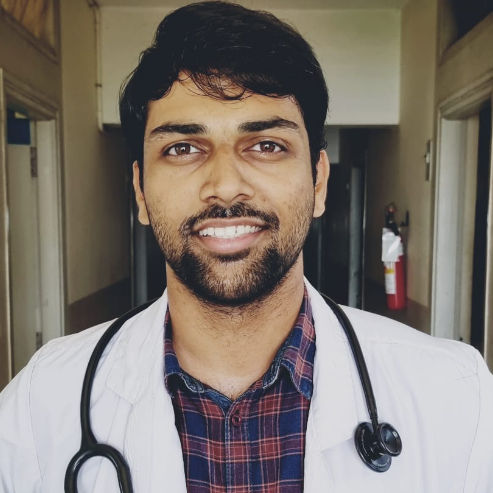
Dr Venkata Naga Sai Tribhushan Rambhatla
General Physician
3 Years • MBBS
Bengaluru
PRESTIGE SHANTHINIKETAN - SOCIETY CLINIC, Bengaluru

Dr. Zulkarnain
General Physician
2 Years • MBBS, PGDM, FFM
Bengaluru
PRESTIGE SHANTHINIKETAN - SOCIETY CLINIC, Bengaluru
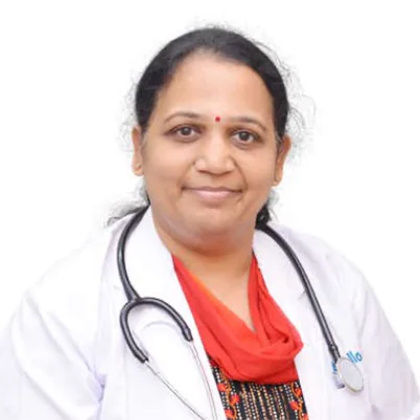
Dr. Renu Saraogi
General Physician/ Internal Medicine Specialist
21 Years • MBBS, PGDFM
Bangalore
Apollo Clinic Bellandur, Bangalore
(250+ Patients)

Dr. Johnson. S
General Practitioner
7 Years • MBBS MD(Preventive and social Medicine)
Pune
Apollo Clinic, Nigdi, Pune

Dr Darshana R
General Physician/ Internal Medicine Specialist
15 Years • MBBS, MD, DNB (Internal Medicine), Diploma in Allergy, Asthma and Immunology , Fellowship in Diabetes
Bengaluru
Apollo Clinic, JP nagar, Bengaluru
(125+ Patients)

Dr. E Prabhakar Sastry
General Physician/ Internal Medicine Specialist
40 Years • MD(Internal Medicine)
Manikonda Jagir
Apollo Clinic, Manikonda, Manikonda Jagir
(150+ Patients)
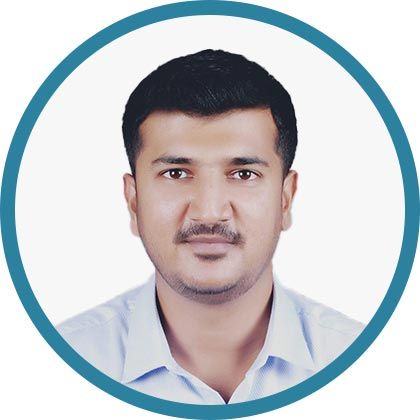
Dr Vishwa Vijeth K.
Pulmonology Respiratory Medicine Specialist
8 Years • MBBS, MD ( Respiratory Medicine)
Bangalore
Apollo Clinic Bellandur, Bangalore
Dr. Preeti Kathail
General Physician/ Internal Medicine Specialist
17 Years • MBBS, PGDHHM
Bangalore
Apollo Clinic Bellandur, Bangalore
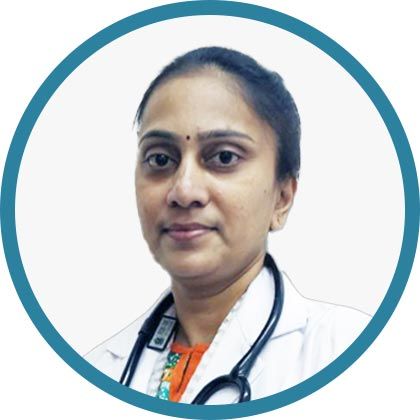
Dr. Jyothi Rajesh
Obstetrician and Gynaecologist
22 Years • MBBS, DGO(DNB)
Bangalore
Apollo Clinic Bellandur, Bangalore
Dr. Naseeha Mohammed S V
Pulmonology Respiratory Medicine Specialist
6 Years • MBBS, MD ,DNB Respiratory Medicine
Bengaluru
Apollo Clinic, Sarjapur Road, Bengaluru

Dr Shivakumar M P
General Physician/ Internal Medicine Specialist
31 Years • MBBS MD
Bengaluru
Apollo Clinic, JP nagar, Bengaluru
Infectious Disease
Booking an appointment with a top infectious disease specialist is now easy with Apollo 24|7. Our experienced infectious disease doctors help you manage a wide range of infectious conditions caused by bacteria, viruses, fungi, and parasites. You can conveniently schedule your online or in-person consultation with a trusted infectious disease specialist at Apollo 24|7. Our specialists will help you plan your medical care, treatments, and provide guidance on preventive measures to safeguard your health. With a network of renowned hospitals and clinics, Apollo 24|7 ensures you have access to the best infectious disease care at your convenience.
What is Infectious Disease?
Infectious disease, also known as infectiology, delves into the complex world of diseases caused by organisms such as bacteria, viruses, fungi, or parasites. Many of these organisms are harmless, and even beneficial, but under certain conditions, they can cause illness. The speciality focuses on the diagnosis, control, and treatment of these infections, which can spread directly or indirectly from one person to another.
Given the global interconnectedness and the ability of infectious diseases to affect public health significantly, this speciality remains crucial in healthcare. It plays a pivotal role not only in treating acute infections but also in managing outbreaks and in preventing the spread of epidemics.
Who is an Infectious Disease Specialist?
An infectious disease specialist is a medical doctor who has completed additional training to specialise in diagnosing, treating, and managing infections. These specialists undergo extensive education, starting with a medical degree followed by several years of speciality training in infectious diseases.
Their expertise includes a deep understanding of the ways infectious agents operate and how infections spread, evolve, and impact the body. They are equipped to manage a wide range of infections, from common infections like influenza to complex conditions such as HIV/AIDS and tuberculosis.
By staying updated with the latest developments and research, they play a crucial role in formulating infection control strategies and treatment plans that address the health needs of individual patients and the broader community.
What Does an Infectious Disease Specialist Do?
An infectious disease specialist is an expert in the prevention, diagnosis, and treatment of infections caused by microorganisms. They play a vital role in healthcare settings, particularly in tackling conditions that are complex to manage and treat.
Key Responsibilities
Diagnosis of Infections: They are skilled in identifying infections that are often rare, complex, or severe. Using various diagnostic tests, they determine the cause of an illness when typical treatment methods do not yield expected results.
Treatment Planning: These specialists develop treatment plans tailored to the specific needs of their patients. This includes prescribing medication regimens, suggesting lifestyle adjustments, and coordinating care with other healthcare professionals.
Infection Control: They advise hospitals and clinics on effective infection control practices, helping to prevent the spread of contagious diseases within medical facilities and into the community.
Research and Development: Many infectious disease specialists are involved in research, seeking new knowledge on infectious agents and effective treatments. They often contribute to medical studies and trials.
Daily Activities and Care Provided
Patient Consultations: Daily activities often include consulting with patients who have been referred by primary care physicians who suspect an infection of unusual or unclear nature.
Monitoring Treatment Efficacy: They monitor the progress of patients under specific treatment protocols, adjusting therapies as necessary to achieve the best outcomes.
Educational Roles: Specialists frequently educate other healthcare providers and patients about the nature of infections and the importance of preventive measures.
Collaborative Care: They work closely with other healthcare professionals to ensure comprehensive care, especially for patients with co-existing conditions or those requiring multidisciplinary treatment approaches.
What are the Other Sub-specialities of Infectious Disease?
Infectious disease encompasses a range of sub-specialities, each focusing on specific aspects of infections. Understanding these can provide a clearer picture of the broader scope of this medical speciality.
Clinical Microbiology: This sub-speciality involves the study and application of microbiology to diagnose, manage, and prevent infectious diseases. Infection specialists typically work closely with clinical laboratories to identify pathogens that cause diseases through the analysis of blood, tissue, and other body fluids.
Epidemiology: Epidemiologists focus on how diseases spread among populations. This sub-speciality is crucial for developing strategies to control and prevent outbreaks, especially in cases of pandemics or localised infections.
Travel Medicine: Specialists in travel medicine provide pre-travel immunizations, health advice, and post-travel screenings to ensure the health of travellers, particularly those visiting regions with high risks of certain infections.
HIV/AIDS Medicine: HIV doctors specialise in managing HIV/AIDS, offering treatments that improve the quality of life and longevity of those living with the virus. This sub-speciality requires continuous education on the latest antiviral treatments and management strategies.
Tropical Medicine: Tropical medicine deals with infectious diseases that are prevalent or originate in tropical and subtropical regions. Diseases such as malaria, dengue, and yellow fever are primary concerns within this area.
Paediatric Infectious Diseases: This sub-speciality focuses on infectious diseases in children, from newborns to adolescents. Specialists are trained to handle the unique aspects of infections that affect younger populations.
Transplant Infectious Diseases: Specialists in this field manage infections in transplant patients, who are at increased risk due to immunosuppression. They work to prevent, diagnose, and treat infections that could impact the success of organ transplants.
Healthcare-Associated Infections: This area focuses on infections acquired in healthcare settings, such as hospitals. The aim is to develop effective strategies to reduce the incidence of these infections through improved sanitation, patient handling, and procedural practices.
Sexually Transmitted Infections: Dealing with infections transmitted through sexual contact, this sub-speciality offers both preventative education and treatment options. Specialists manage a wide range of conditions, from common infections like chlamydia to more complex diseases such as syphilis.
Infection Control: Infection doctors develop and implement policies to prevent the spread of infections within medical facilities and the community. This crucial role involves training healthcare staff, managing outbreaks, and ensuring compliance with health regulations.
Each of these sub-specialities plays a vital role in the comprehensive management of infections, addressing everything from common illnesses to complex diseases that require specialised care.
Whether it is a fungal infection specialist working in a lab or a clinician treating patients in a travel clinic, each professional contributes significantly to our understanding and management of infectious diseases.
What are the Infectious Disease Examinations or Tests Performed by the Infectious Disease Specialist?
Infectious disease specialists employ a variety of diagnostic tests to accurately identify and manage infections. These tests are crucial for determining the appropriate treatment plans for patients.
Blood Tests: One of the most common diagnostic tools, blood tests can detect the presence of antibodies, which are produced in response to an infection, or they can directly measure the presence of pathogens in the blood through cultures.
Urine and Stool Tests: These tests are used to identify infections of the urinary tract, digestive system, or other organs. Pathogens or their products can be detected in the excreted samples, providing vital clues about the nature of the infection.
Imaging Tests: Imaging tests such as X-rays, CT scans, and MRIs can help visualise the areas affected by an infection. These images can show the extent of infection in organs and tissues, guiding further treatment decisions.
Throat Swabs: Commonly used to diagnose respiratory infections, throat swabs can detect pathogens that cause throat infections, such as strep throat, influenza, or COVID-19.
Lumbar Puncture: This procedure involves collecting cerebrospinal fluid through a needle inserted into the spine. It is critical for diagnosing serious infections like meningitis or encephalitis.
Biopsies: In cases where a deep tissue infection is suspected, a biopsy may be performed to collect a small sample of tissue for examination under a microscope.
Polymerase Chain Reaction (PCR) Tests: PCR tests are highly specific and can rapidly detect the DNA of pathogens, making them especially useful in identifying fastidious organisms or in situations where quick diagnosis is critical.
Each of these tests provides the infectious disease specialist with essential data to accurately diagnose and manage infections. If you suspect an infection or have been referred by another doctor, you can book infectious disease specialist to ensure you receive expert care tailored to your condition.
What are the Common Conditions & Diseases that Infectious Disease Specialists Treat?
Infectious disease specialists are trained to handle a wide range of infectious conditions, focusing on those that are complex or uncommon. Here are the top 15 conditions they frequently manage:
HIV/AIDS: A viral infection that gradually weakens the immune system, leading to severe health complications and opportunistic infections.
Tuberculosis (TB): A bacterial infection that primarily affects the lungs but can spread to other organs.
Hepatitis: Inflammation of the liver, caused by various viruses (A, B, C, etc.), often leading to liver damage or failure.
COVID-19: A viral respiratory illness caused by the SARS-CoV-2 virus, characterised by symptoms ranging from mild to severe respiratory distress.
Influenza (Flu): A viral infection that attacks the respiratory system, known for its seasonal outbreaks.
Staphylococcal infections: Infections caused by Staphylococcus bacteria, ranging from skin infections to more severe conditions like pneumonia.
Malaria: A mosquito-borne disease caused by Plasmodium parasites, noted for its fever, chills, and flu-like symptoms.
Fungal infections: Various fungi cause conditions like ringworm or more severe forms like cryptococcal meningitis.
Cellulitis: A common bacterial skin infection that causes redness, swelling, and pain.
Lyme disease: A tick-borne illness that can cause symptoms across multiple body systems, from rash to neurological complications.
Meningitis: An inflammation of the protective membranes covering the brain and spinal cord, usually caused by infection.
Pneumonia: A lung infection that can be caused by bacteria, viruses, or fungi, leading to breathing difficulties.
Sepsis: A potentially life-threatening response to infection that can lead to tissue damage, organ failure, and death.
Sexually Transmitted Infections (STIs): Infections transmitted through sexual contact, including chlamydia, gonorrhoea, and syphilis.
Zika Virus: A virus spread primarily by mosquitoes, known for causing birth defects if contracted during pregnancy.
These specialists focus on diagnosing and managing these infections to reduce their impact on patient health.
Reasons to See an Infectious Disease Specialist
If you're experiencing symptoms that are unusual, severe, or not responding to standard treatments, it might be time to consult an infectious disease specialist. Here are a few reasons why:
Persistent or High Fever: Indicates a possible infection that might require specialised care.
Travel-Related Illnesses: Especially if you’ve returned from regions known for specific infectious diseases.
Complex Infections: Such as those not responding to standard antibiotic treatment.
Immunocompromised Conditions: Such as HIV or post-transplant, where infections can be more severe and harder to manage.
Unexplained Symptoms: Like prolonged fatigue, weight loss, or night sweats, which could suggest an underlying infectious disease.
For expert guidance, consider scheduling an online infectious disease specialist consultation to discuss any concerning symptoms or conditions.
What Types of Procedures do Infectious Disease Specialists Perform?
Infectious disease specialists are crucial in managing complex infections through various therapeutic and surgical interventions. Below, we explore the top therapies and surgeries commonly performed within this speciality.
Top Therapies
Antimicrobial Therapy: Administering antibiotics, antivirals, antifungals, or antiparasitics to treat various infections.
Intravenous Antibiotics: For severe infections, medications are administered directly into the bloodstream to ensure rapid and effective treatment.
Vaccination: Providing immunizations to prevent infectious diseases such as hepatitis, flu, and COVID-19.
Immune Globulin Therapy: Administering concentrated antibodies to treat or prevent specific infections, especially in immunocompromised patients.
Wound Care: Managing and treating infected wounds to prevent the spread of infection and promote healing.
Antiretroviral Therapy (ART): A regimen for HIV/AIDS patients to manage and suppress the virus.
Infection Control Consultations: Advising healthcare facilities on how to prevent and control infections, enhancing safety for patients and staff.
Drainage of Abscesses: Sterilised removal of pus from infected areas to reduce the load of infection and relieve symptoms.
Tuberculosis Management: Comprehensive treatment plans that include long-term medication regimens to combat tuberculosis.
Targeted Drug Therapy: Using drugs that specifically target the infectious agents, minimising damage to the rest of the body.
Top Surgeries
Exploratory Surgery: Performed to identify the extent of an infection or to obtain a sample for accurate diagnosis.
Infected Tissue Removal: Surgical removal of tissues that have been irreversibly damaged by infection.
Implantable Devices for Medication: Placement of devices that allow for the slow release of antibiotics directly at the site of infection.
Surgical Debridement: Removing dead, damaged, or infected tissue to help heal a serious wound.
Lymph Node Excision: Removal of lymph nodes that are significantly affected by an infection or to diagnose conditions like tuberculosis.
These procedures are critical tools in the arsenal of infectious disease specialists, enabling them to provide comprehensive care tailored to the needs of their patients. The infectious disease specialist fee often reflects the complexity and necessity of these specialised interventions.
Why Choose an Apollo 24|7 Infectious Disease Specialist?
Apollo 24|7 infectious disease specialists are highly qualified and experienced in managing a wide range of infectious conditions. With extensive training, including four years of medical school, three years of internal medicine residency, and two to three years of specialised training in infectious diseases, these specialists are board-certified in both internal medicine and infectious diseases.
They provide personalised care tailored to each patient's specific needs, ensuring the most effective treatment plans and optimal outcomes.
Apollo 24|7 offers advanced treatment options and state-of-the-art facilities, ensuring that patients receive the highest quality of care. The platform provides seamless access to consultations, both online and in-clinic, allowing patients to connect with their infectious disease specialist conveniently and efficiently.
With a strong focus on patient-centred care and a commitment to excellence, Apollo 24|7 infectious disease specialists are dedicated to helping patients overcome infectious diseases and maintain optimal health.
What to Expect When Visiting an Infectious Disease Specialist?
Visiting an infectious disease specialist provides a focused approach to diagnosing and treating complex infections. Here’s what patients can generally expect during a visit:
Detailed Medical History: The specialist will take a comprehensive medical history to understand past and current health issues, which is critical for accurate diagnosis.
Physical Examination: A thorough physical examination will be conducted to check for signs of infection and assess overall health.
Diagnostic Testing: Depending on the symptoms, various tests such as blood tests, imaging, or biopsies may be ordered to pinpoint the infection.
Discussion of Treatment Options: The specialist will discuss potential treatment plans, including medications, lifestyle adjustments, and follow-up care.
Patients are encouraged to check infectious disease specialist reviews to learn about others’ experiences and set realistic expectations. For those looking to find a healthcare provider in their area, searching for an infectious disease specialist near me can provide options nearby.
How Can I Get an Appointment With an Infectious Disease Specialist?
To book an appointment with an infectious disease specialist at Apollo 24|7, you have several convenient options:
Online Booking: Visit the Apollo 24|7 website and navigate to the "Infectious Disease" speciality page. Select your preferred specialist and choose a suitable date and time for your consultation. Follow the prompts to complete your booking.
Mobile App: Download the Apollo 24|7 mobile app from the App Store or Google Play. Log in or create an account, then select the "Infectious Disease" speciality. Choose your desired specialist and book an appointment at a convenient time.
Phone Booking: Call the Apollo 24|7 helpline and speak with a representative to schedule your appointment with an infectious disease specialist. Provide your preferred date, time, and location, and the representative will assist you in completing the booking process.
In-Person Booking: Visit your nearest Apollo 24|7 clinic or hospital and inquire about scheduling an appointment with an infectious disease specialist at the reception desk. The staff will guide you through the booking process and help you find a suitable time slot.
FAQs
What are infectious diseases?
Infectious diseases are illnesses caused by microorganisms such as bacteria, viruses, fungi, and parasites. These diseases can affect various parts of the body, including the skin, urinary tract, lungs, and blood. They spread through person-to-person contact, contaminated food or water, insect and animal bites, and other routes.
What causes infectious diseases?
Infectious diseases are caused by a variety of agents that invade the body from the outside. These include viruses, bacteria, fungi, and parasites. They can spread through person-to-person contact, contaminated food or water, insect and animal bites, and other routes, leading to a wide range of symptoms and health issues.
How do infectious diseases spread?
Infectious diseases can spread through several means, including person-to-person contact, contaminated food or water, insect and animal bites, through the air (for airborne pathogens), and through cuts in the skin or mucous membranes. Understanding these transmission routes is crucial for preventing the spread of infections.
What are the symptoms of infectious diseases?
Symptoms of infectious diseases vary depending on the type of illness. Common symptoms include fever, localised symptoms like rash and itching for fungal infections, and widespread symptoms such as body aches and respiratory issues for viral and bacterial infections. Prompt medical attention is essential for accurate diagnosis and treatment.
When should you see an infectious disease specialist?
You should see an infectious disease specialist when you have a fever that raises suspicion of an infection, when the infection is potentially serious or complicated, when problems occur with treatment, if you are hospitalised for an infection or acquire an infection while hospitalised, or for chronic or recurrent infections that your family physician cannot manage.
What does an infectious disease specialist do?
An infectious disease specialist is an expert in the diagnosis and treatment of illnesses caused by microorganisms. They review a patient's medical data, perform physical examinations, order laboratory tests, determine the cause of an infection, develop a treatment plan, and provide specialised care for conditions like HIV/AIDS, tuberculosis, malaria, and other complex infections.
What tests do infectious disease specialists order?
Infectious disease specialists often order laboratory tests to diagnose infections. These tests include blood and body fluid cultures to grow microorganisms, blood serum analysis to detect antibodies, DNA tests to detect the genetic material of microorganisms, and other advanced tests to further explain the results of earlier tests.
What types of treatment are provided by infectious disease specialists?
Treatment typically consists of medications, usually antibiotics, to battle the infection and prevent it from returning. These medications can be administered orally or through IV tubes. In some cases, infectious disease specialists may offer IV antibiotic therapy in their offices to avoid hospitalisation.
How do infectious disease specialists work with other medical professionals?
Infectious disease specialists work closely with family physicians and other specialists to determine appropriate diagnostic tests, develop and implement treatment plans, follow up on patients to ensure the infection is resolved and to prevent recurrence, and coordinate care for patients who are hospitalised or need ongoing treatment.
What conditions do infectious disease doctors frequently treat?
Infectious disease doctors commonly treat conditions such as Clostridium difficile (C. diff), HIV, pneumonia, sexually transmitted diseases, diseases carried by ticks or mosquitoes (e.g., malaria, dengue fever), urinary tract infections, hepatitis B and C, wound infections, and skin infections. They specialise in managing complex and challenging infectious cases.